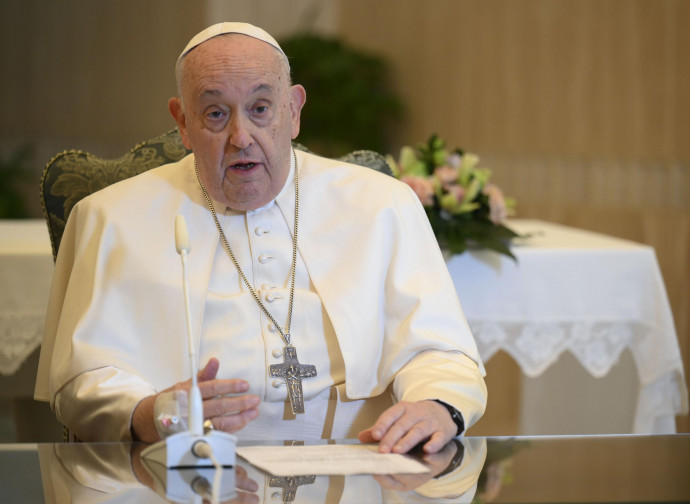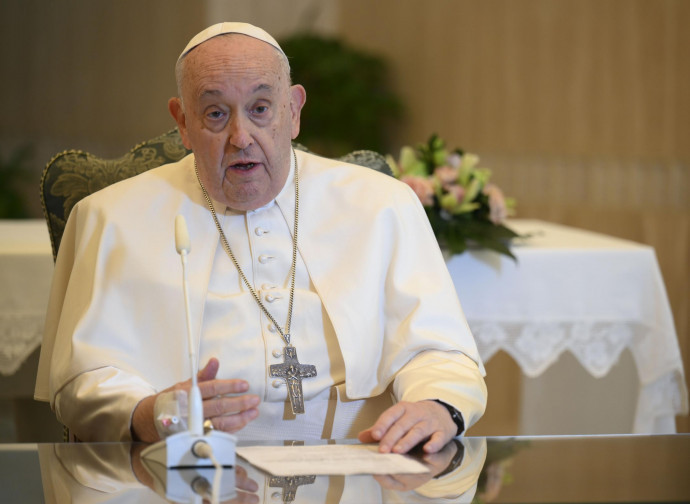- Feb 5, 2002
- 166,616
- 56,251
- Country
- United States
- Faith
- Catholic
- Marital Status
- Married
- Politics
- US-Others
Criticism of the Pope is morally licit because he too can make mistakes, except when he speaks ex cathedra. The Bible, the Magisterium and canon law provide for it. But, it must respect the principle of proportion and be guided by prudence and charity.

“No one can judge me, not even you”, goes the saying. But not even the pope can make this claim. In fact, what divides the Church today is not so much doctrinal error, but criticism of the Pope. On the one hand there are those who consider it unthinkable, unacceptable to criticise the Pope, and on the other those who take the complete opposite view. The issue of whether or not it is permissible to criticise the Pope is the most accidental cause of division within the Church, it is the real thorn in the side of ecclesial unity.
This is why people abandon parishes and associations, why they choose to attend Sunday Mass in another church, why they no longer read certain newspapers or websites, why rifts are created within families, why vicious posts are made on social media. This leads to a dichotomous approach to the problem: for or against the Pope. But the criterion of supporters is wrong, because the point is another and starts from two questions: is it licit to criticise the Pope? And, if so, on which occasion can he be criticised?
Regarding the first question, criticising the Pope is licit from a moral point of view for one very simple reason: he too can make mistakes. If we want to respect the principle of non-contradiction, we must necessarily conclude that outside of Petrine infallibility there is Petrine fallibility. It is the dogmatic constitution Pastor aeternus itself that confirms this, albeit indirectly: "We [...] proclaim and define a dogma revealed by God that the Roman Pontiff, when he speaks ex cathedra, that is, when he exercises his supreme office of Pastor and Doctor of all Christians, and by virtue of his supreme apostolic power defines a doctrine concerning faith and morals [...] enjoys that infallibility with which the divine Redeemer willed his Church to be equipped in defining doctrine concerning faith and morals". Therefore, when he does not speak ex cathedra the Pope is fallible. Of course, this does not mean that everything that falls under this umbrella is equally fallible, i.e. everything can be criticised. If a pope, not executing his own infallibility, affirms that Jesus Christ is God, he is merely reaffirming, without the formal garb of infallibility, a Catholic dogma. If, on the other hand, he asserts that all migrants should be indiscriminately welcomed, the assertion, being about a way of doing good, is inherently questionable.
Continued below.

 newdailycompass.com
newdailycompass.com

“No one can judge me, not even you”, goes the saying. But not even the pope can make this claim. In fact, what divides the Church today is not so much doctrinal error, but criticism of the Pope. On the one hand there are those who consider it unthinkable, unacceptable to criticise the Pope, and on the other those who take the complete opposite view. The issue of whether or not it is permissible to criticise the Pope is the most accidental cause of division within the Church, it is the real thorn in the side of ecclesial unity.
This is why people abandon parishes and associations, why they choose to attend Sunday Mass in another church, why they no longer read certain newspapers or websites, why rifts are created within families, why vicious posts are made on social media. This leads to a dichotomous approach to the problem: for or against the Pope. But the criterion of supporters is wrong, because the point is another and starts from two questions: is it licit to criticise the Pope? And, if so, on which occasion can he be criticised?
Regarding the first question, criticising the Pope is licit from a moral point of view for one very simple reason: he too can make mistakes. If we want to respect the principle of non-contradiction, we must necessarily conclude that outside of Petrine infallibility there is Petrine fallibility. It is the dogmatic constitution Pastor aeternus itself that confirms this, albeit indirectly: "We [...] proclaim and define a dogma revealed by God that the Roman Pontiff, when he speaks ex cathedra, that is, when he exercises his supreme office of Pastor and Doctor of all Christians, and by virtue of his supreme apostolic power defines a doctrine concerning faith and morals [...] enjoys that infallibility with which the divine Redeemer willed his Church to be equipped in defining doctrine concerning faith and morals". Therefore, when he does not speak ex cathedra the Pope is fallible. Of course, this does not mean that everything that falls under this umbrella is equally fallible, i.e. everything can be criticised. If a pope, not executing his own infallibility, affirms that Jesus Christ is God, he is merely reaffirming, without the formal garb of infallibility, a Catholic dogma. If, on the other hand, he asserts that all migrants should be indiscriminately welcomed, the assertion, being about a way of doing good, is inherently questionable.
Continued below.

Criticising the Pope is lawful, here’s how
Criticism of the Pope is morally licit because he too can make mistakes, except when he speaks ex cathedra. The Bible, the Magisterium and canon law provide for it. But, it must respect the principle of proportion and be guided by prudence and charity.
